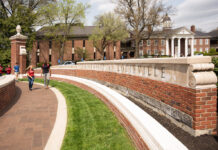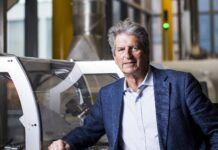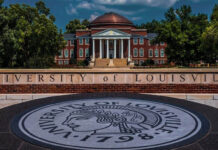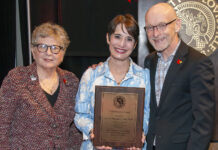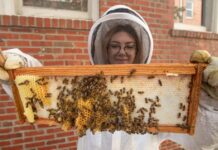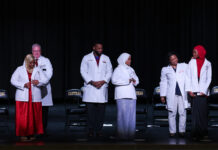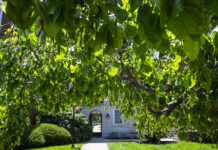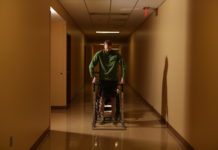Roberto Bolli, director of UofL’s Institute for Molecular Cardiology, and Michael Flaherty, director of Adult Cardiac Structural Disease, lead the trial at UofL, which is the only site in Kentucky among some 50 trial sites in North America participating in the research. The trial is not being conducted at any site in Indiana.
Known as the “RENEW” trial, the study is recruiting patients who have severe refractory angina, characterized by intense and chronic chest discomfort that does not respond to conventional medical treatment or surgery.
The condition is an indicator of chronic myocardial ischemia (CMI). One of the most severe forms of coronary artery disease, CMI causes significant long-term damage to the heart muscle and disability to the patient.
Eligible study participants are male or female patients, 21 to 80 years of age, who have chronic, refractory angina that has not responded to conventional therapies or surgical interventions. There are some exclusion criteria, such as a cardiac-related hospitalization in the last 60 days, a coronary artery bypass graft procedure within the last six months, and others.
Full criteria for participation are found online in the trial protocol synopsis. Participants also can call Tina Collins, clinical research coordinator, at 502-587-4106 for information and to make arrangements to be screened for possible participation.
In the RENEW trial, participants will first participate in a series of exercises that will provide a baseline measurement of their heart function and capacity. They also will keep a diary noting the frequency and severity of their angina attacks.
Patients then will provide blood samples that will be processed to extract stem cells that express what is known as the “CD34+” stem cell. While scientists have yet to discover the CD34+ stem cell’s full function, it is known as a marker, or indicator, of stem cells and bears a relationship to the vascular system.
The extracted CD34+ stem cells then will be injected back into target areas of the patient’s heart. After several follow-up visits, patients will undergo the same exercise series and report on their angina condition to measure the effects of the treatment. Patients will be followed for approximately two years.
The trial is being initiated based on the results of a previous Phase II trial indicating that injections of adult patients’ own CD34+ stem cells improved exercise tolerance time and reduced reports of angina episodes in patients with chronic, severe refractory angina.
The trial is expected to enroll about 440 patients total. Participants will be randomized to one of three arms: treatment arm, active-control arm and unblinded standard-of-care arm. It is funded by Baxter Healthcare Corp. (NYSE: BAX) of Deerfield, Ill.
Bolli is no stranger to groundbreaking research in the use of autologous stem cells for treatment of cardiac disease. He led the SCIPIO trial at UofL in which patients suffering from heart failure due to a previous heart attack showed an average of 12 percent improvement one year after infusing them with their own stem cells. The results tripled the 4 percent improvement average the researchers projected for the Phase I trial.
The SCIPIO trial was the first report of administering subjects’ own cardiac stem cells in humans; previous studies used stem cells harvested from bone marrow.
Adult stem cell protocols possibly could become one of the greatest advancements in cardiac treatment in a generation, Bolli said.
“We are intrigued by the beneficial effect that autologous stem cell treatment appears to have in repairing hearts damaged from infarction (heart attack) or disease,” he said. “As we continue to study the potential benefits of autologous stem cell treatments, we will look to see if the types of results seen in earlier studies hold up in the future.







